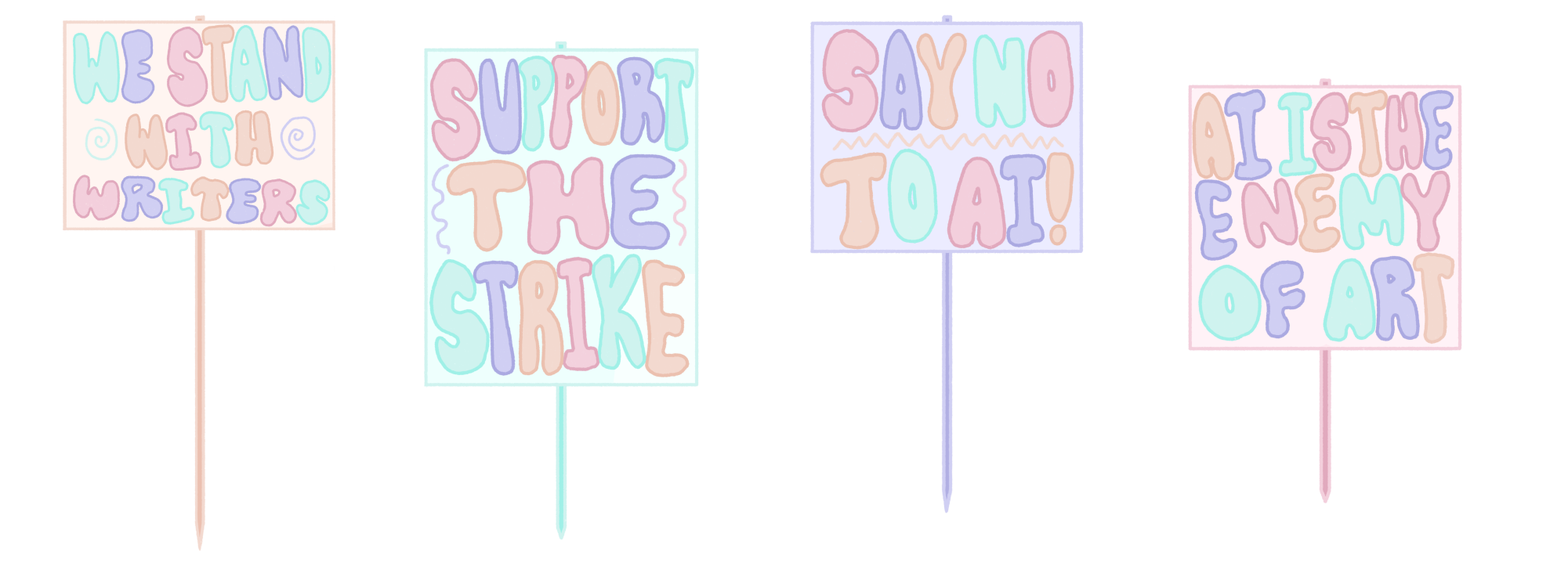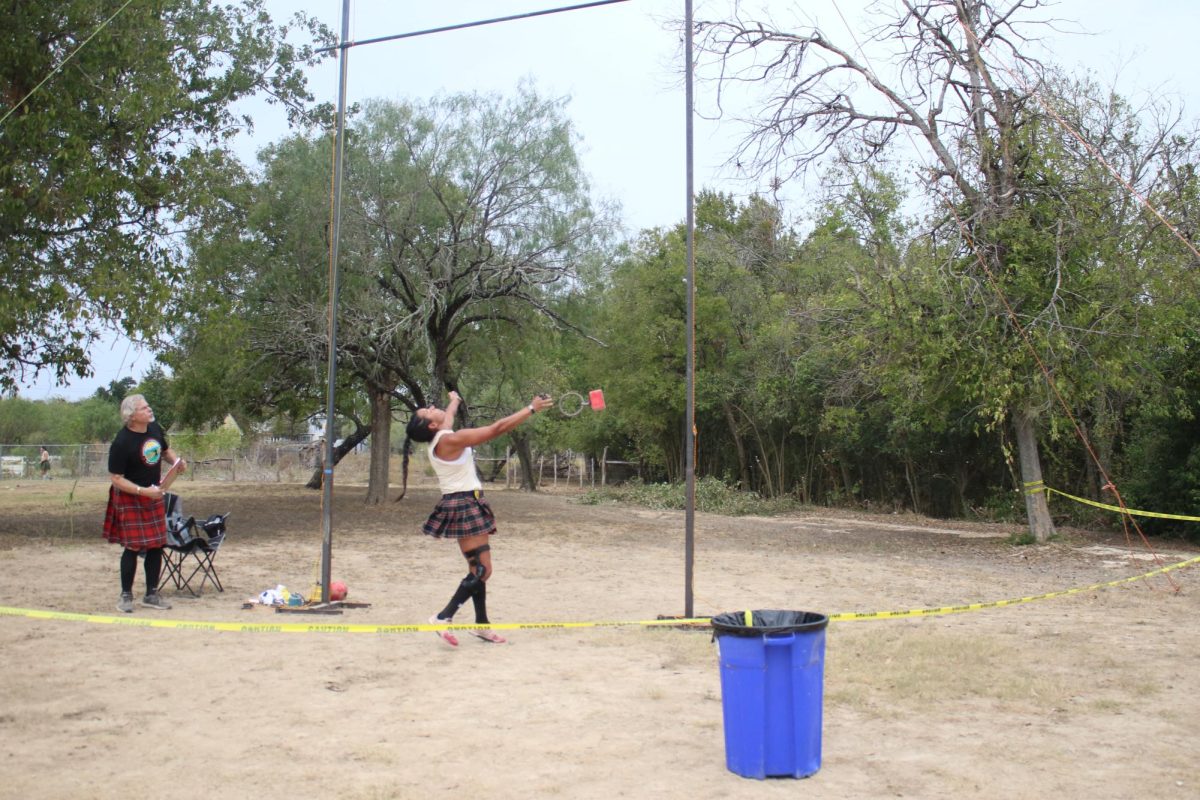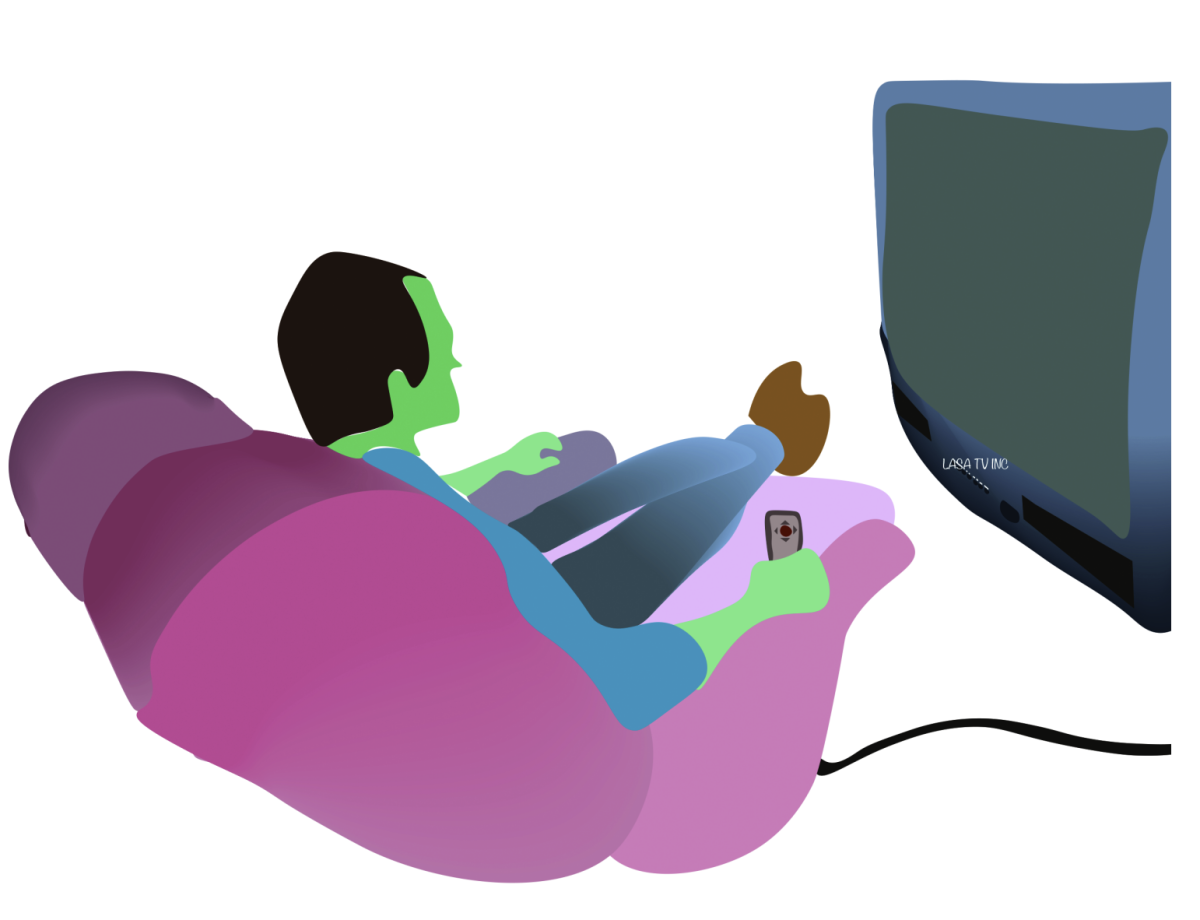
Writers and actors alike want higher minimum pay, guaranteed residuals, and reassurance that their jobs will not be replaced by the growing threat of artificial intelligence (AI) in the Hollywood industry.
The Writers Guild of America (WGA) was originally on strike from May 2 to September 26, but The Screen Actors Guild and American Federation of Television and Radio Artists (SAG-AFTRA) joined the strike on July 14. This was the first time writers and actors have been on strike together since the 1960s, and this time the number of those on strike surpassed 65,000 people. While the WGA was able to successfully reach a deal with studios, SAG-AFTRA is still fighting for their rights in Hollywood. Similar to the reasoning of the WGA strike, part of the purpose of the SAG-AFTRA strike is to ensure that human jobs have a safety net against AI, which can be used to replicate the voice or image of a performer. The importance of human-operated jobs is, in my eyes, crucial to the product and quality of the work. AI can make mistakes or create poorly generated work, but man-made content usually feels less robotic. AI doesn’t have the ability to feel, meaning it could be hard for it to make convincing or realistic work, especially for some entertainment genres such as horror.
According to law firm DLA Piper’s article about the SAG-AFTRA guidelines, those on strike may not accept any jobs or advertise upcoming or previously created films. However, that hasn’t stopped some celebrities, like Selena Gomez, from breaking the strike. After she posted on Instagram about her series on Hulu, she received comments informing her about how it was disrespectful to the strike and the people on strike, telling her she should delete the post.
Crossing the picket line, as Gomez has done, is disrespectful towards the strike and the people striking, even if the picket line isn’t physical in this case. It demonstrates complete disregard for the strike, as well as the sacrifices people have put into it and the risks they are taking to stand up for themselves and others in the industry.
Many involved in the strike are worried about finances. For the duration of the strike, many in the entertainment industry hadn’t been earning a salary. While this wasn’t a problem for A-list celebrities, many smaller actors or writers faced economic fallout. For some people involved in the Hollywood industry, finance can be unstable and unpredictable, which was intensified by the length of the strike.
According to Business Insider, an unnamed Hollywood insider said that they were planning to let the writer’s strike drag on until writers ran out of money. Allowing those on strike to continue until they run out of money or lose their homes ,and then ending it after strikers are rendered bankrupt is absolutely horrible and disgusting. Even if this sentiment was a merely scare tactic, it left writers and actors feeling anxious and disrespected.
37,700 jobs and around $2.1 billion have been lost from the economy of California, according to the Milken Institute. Movies and series have stopped being produced, and the production will continue to be paused until the end of the strike. According to the Writers Guild of America (WGA), the amount that writers get paid has decreased by 4 percent throughout the decade, and 23 percent if you adjust for inflation.
The best end to the strike would definitely be Hollywood agreeing to the terms the WGA and SAG-AFTRA have laid out. The terms are reasonable and more than fair for the writers who have been underpaid for far too long. Plus, after the end of the WGA strike, SAG-AFTRA has been negotiating the end of the strike and the terms that come with it with several studios and corporations. Hopefully, the WGA strike also ends soon with both writers and actors receiving the proper and just compensation.






